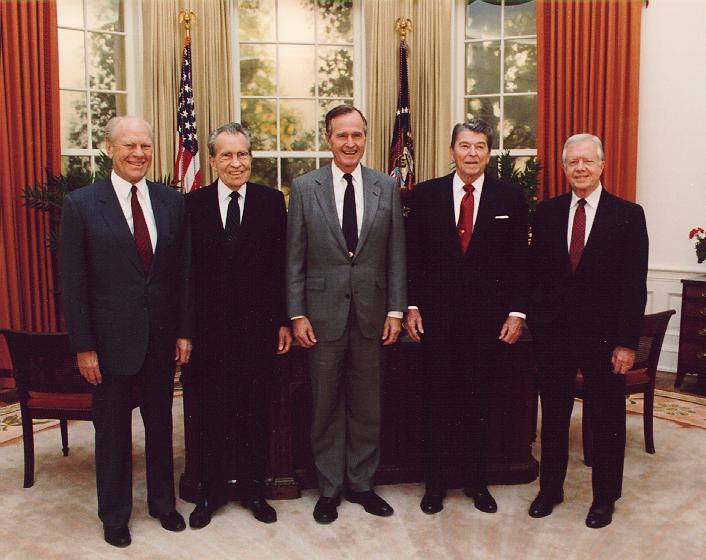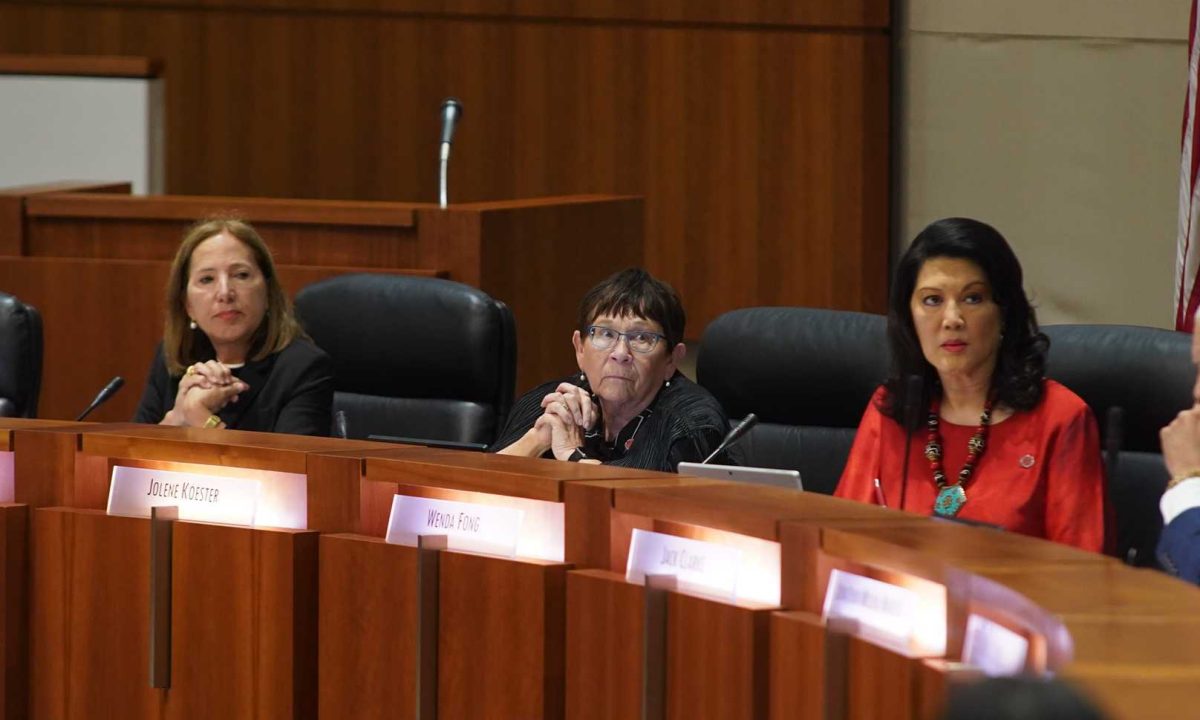Since his death on Friday, Nov. 30, the nation has been remembering the life of former President George H.W. Bush. His administration is said to have flourished in a new era of American dominance, post-Cold War.
However his tenure was also dotted with failures, and some say it helped pave the way for the new wave of brash conservatism that dominates the political landscape today.
The 41st president topped his time in office with multiple foreign policy successes. SF State assistant professor of political science Rebecca Eissler commended Bush’s leadership during the first Gulf War.
“His limited military engagement showed restraint and clear-minded judgment about the difficulties that would befall an extended U.S. military engagement in the Middle East,” Eissler said.
Additionally, Bush’s patience during the fall of the Berlin Wall, and the end of the Cold War, is credited for the peaceful disintegration of the Soviet Union.
However, Bush’s accomplishments abroad did not transition domestically. In his 1988 presidential run, Bush famously said, “Read my lips: no new taxes.” But two years later, facing a $200 billion deficit, he passed a much needed tax hike.
His broken promise was met with dissidence within his own party, and began the end of his short-lived presidency.
One of Bush’s most notable domestic failures was his inaction toward the country’s AIDS epidemic until the Ryan White CARE Act of 1990, which many believed arrived too late.
“He handled it poorly,” Eissler said.
“He seemed to think that if he ignored the problem it would go away.”
According to Samantha Taylor, an SF State senior studying psychology and part-time employee for the Human Rights Campaign Action Center in the Castro, Bush only signed the CARE Act after receiving large amounts of pressure from activist groups.
“Thousands of people were dying nationwide, and because of his conservative and homophobic views, he turned a blind eye to the crisis at hand,” Taylor said.
Bush’s victories overseas were not enough to overshadow his failures at home.
He lost the 1992 presidential race to Bill Clinton and soon fell from the public eye until his own son’s presidency.
Bush’s diplomatic decency, patience and kindness has been written about fondly since his passing. Nostalgic writers expressed appreciation of H.W.’s time in office, calling it simpler and more balanced compared to the political times of today.
But according an episode of The Daily podcast by Peter Baker, a White House correspondent for the New York Times, the new age of Republicans began to emerge during the Bush administration.
“The Republican Party of today is significantly different than the party of George H.W. Bush’s time,” Eissler said.
“But we started to see the trend towards what we have today in that time.”
In the 1988 presidential election that pitted Bush against Democrat Michael Dukakis, Republicans famously released the Willie Horton ad, aimed at destroying Dukakis’ legitimacy.
The ad attacked Dukakis’ support for a prison program that allowed inmates time out of prison.
Willie Horton, an African-American inmate who participated in the program, escaped, raped a woman and killed her partner.
According to Eissler, the Willie Horton ad was, “one of the most openly and explicitly racist campaign ads of the time.”
A similar ad appeared in President Donald Trump’s Twitter feed in October, linking the Democrats’ supposed lack of concern for national safety in the Luis Bracamontes ads.
Bush was also a major architect for Reagan’s strengthened War on Drugs, which increased the level of incarceration in the United States, causing a ripple effect still seen today.
Jon Meachum, Bush’s biographer, said H.W. believed his presidency would be “lost between the glory of Reagan and the trials and tribulations of my sons.”
Despite today’s divided political climate, liberal and conservative leaders stood together mourning H.W.’s death and remembered his legacy.
Bush’s funeral at the Washington National Cathedral on Wednesday, Dec. 5, was attended by a bipartisan crowd of Washington officials and international leaders.
He was remembered for his life-long career in public service, starting with his enlistment into the United States Navy during World War II, and extending to his years as a politician.
He was a member of Congress, an ambassador to the United Nations, envoy to China, CIA director, and most notably, before his own presidency, the vice president to Ronald Reagan.
“A great and noble man,” said his son and former President George W. Bush as he held back back tears. “The best father a son, or daughter, could have.”
Bush was laid to rest last Thursday, Dec. 6, in Houston next to his wife, Barbara Bush, who died in April, and his daughter, Robin Bush, who died of leukemia at the age of three.










